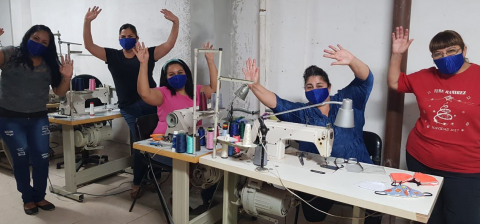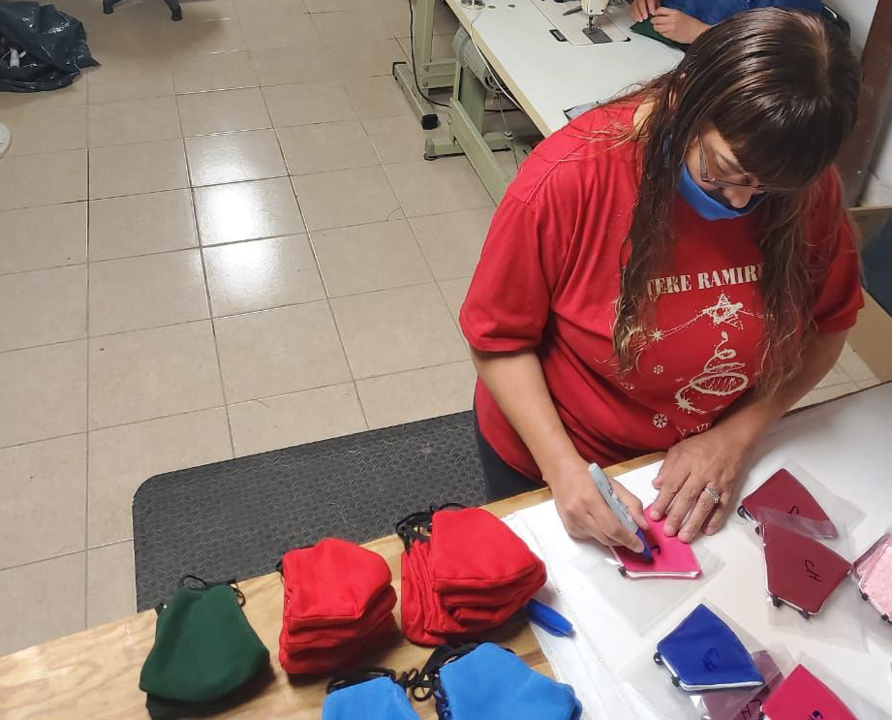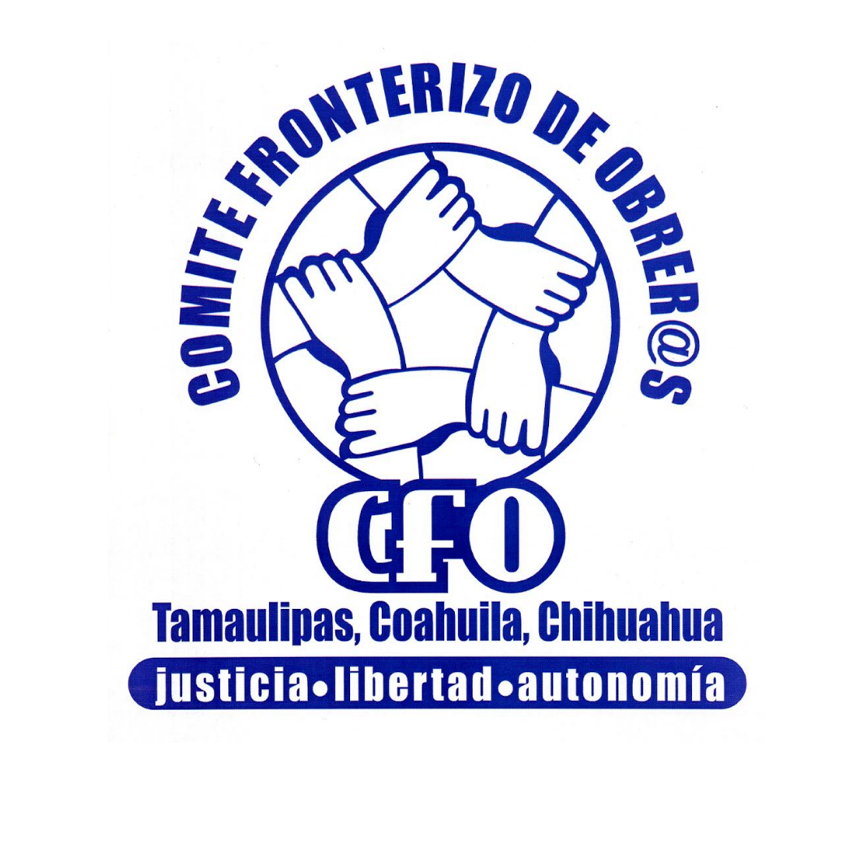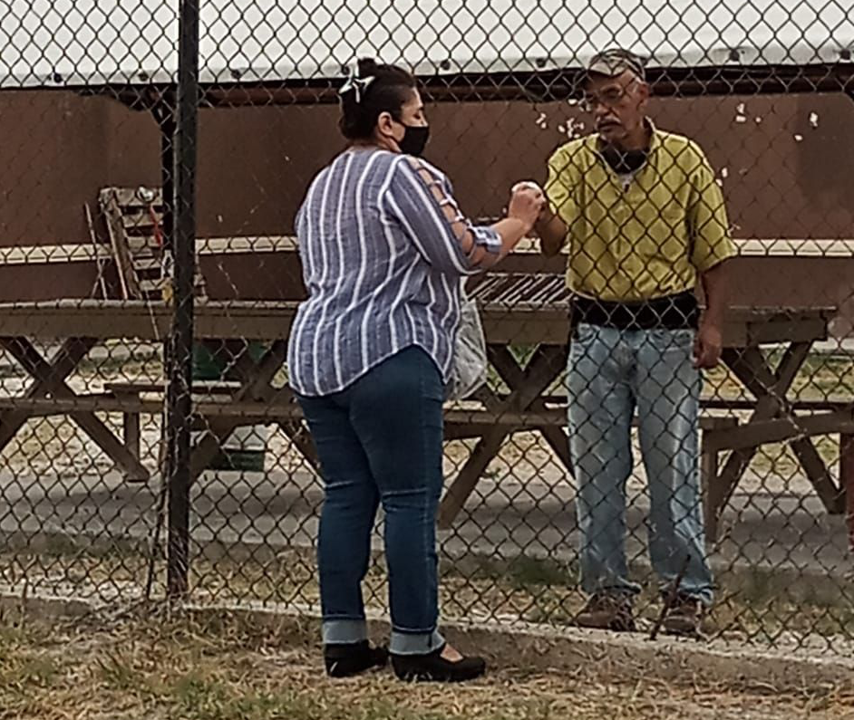
The COVID-19 pandemic has hit Mexico hard. As of mid-November, the country has almost one million confirmed positive cases and over 95,000 official deaths. Since the pandemic started, maquila factories in the northern states experienced waves of infections among workers, with little protection provided by factory owners and management.
In April, MSN posted a report by the Comité Fronterizo de Obreras (CFO), a partner organization in the state of Coahuila in northern Mexico, highlighting the serious challenges maquila workers were facing regardless of whether they were compelled to continue working under unsafe conditions or faced with temporary suspensions. Of note, many factories that remained open weren’t implementing physical distancing between workers or providing sufficient soap for hand washing, while the factories that closed offered workers only 50% of their basic salary until they reopened.
Six months after that report was released, MSN spoke with Julia Quiñonez, coordinator of CFO, to obtain an update on the situation of maquila workers in Coahuila and how her organization is responding to the “new normal.”
Quiñonez reports that since June, the vast majority of the factories operating in Piedras Negras, Coahuila, where CFO is based, have reopened and are at nearly full operation. “The reopening is both good and bad news for workers,” she explains,” since workers can earn their full wage again, but childcare centres and schools remain closed, creating serious problems for working single mothers who do not have extended family support for childcare alternatives.”
At home
Quiñonez explains that workers have also been under stress over lack of access to the internet: “workers may not have the latest technology to access remote learning for their children. Many of the workers we work with have more than one child, therefore needing more than one device for all of them to access their respective virtual classrooms.” In this context, CFO and allied organizations across the US border have started campaigns for donations of used smart phones, tablets and computers to be shared with maquila workers.
Inside the factories
Many of the problems profiled in the April CFO report continue to this day. Workers are not given adequate access to personal protective equipment. “The face masks they receive don’t last more than a day and they fall apart with the heat of the factory,” says Quiñonez. “Ventilation is poor and many factories have put in place simulations of the health and safety protocols, where they only take cosmetic, superficial safety measures, but do not follow the entire procedure they are supposed to.”
 Mass layoffs, especially of workers with chronic illnesses, have been on the rise over the last few months. “Many of the suspended workers are receiving no pay at all while on suspension, and not being called back to work. Young workers with little seniority were the first ones to be fired, as production slowed, without receiving proper severance.”
Mass layoffs, especially of workers with chronic illnesses, have been on the rise over the last few months. “Many of the suspended workers are receiving no pay at all while on suspension, and not being called back to work. Young workers with little seniority were the first ones to be fired, as production slowed, without receiving proper severance.”
Justice and Dignity Relaunched
In the midst of this pandemic, CFO, recently relaunched its garment manufacturing co-operative Maquiladora Justicia y Dignidad (Justice and Dignity Maquila), which, as a first run, has produced over 1,000 masks which are being distributed to workers outside the factories, together with “Know your Rights” flyers.
“We had to close down the co-op in March due to the pandemic,” says Quiñonez, ”but now we have reorganized the workplace, put the appropriate protocols in place, and we are producing again. We have a group of compañeras, former maquila workers, making good-quality masks with three filters that workers can wash and reuse.” Since they restarted production in the co-op, CFO has distributed hundreds of masks to workers in the industrial area of Piedras Negras.
Quiñonez is hopeful that with CFO’s mask distribution efforts will provide workers with better protection as well as important information about their rights during the pandemic. “We have started with the small factories, but we hope we’ll be able to bring good-quality masks to thousands of workers, along with information on their rights.”
Access CFO’s April 2020 report, Maquila Workers and the COVID-19 Pandemic, here.

